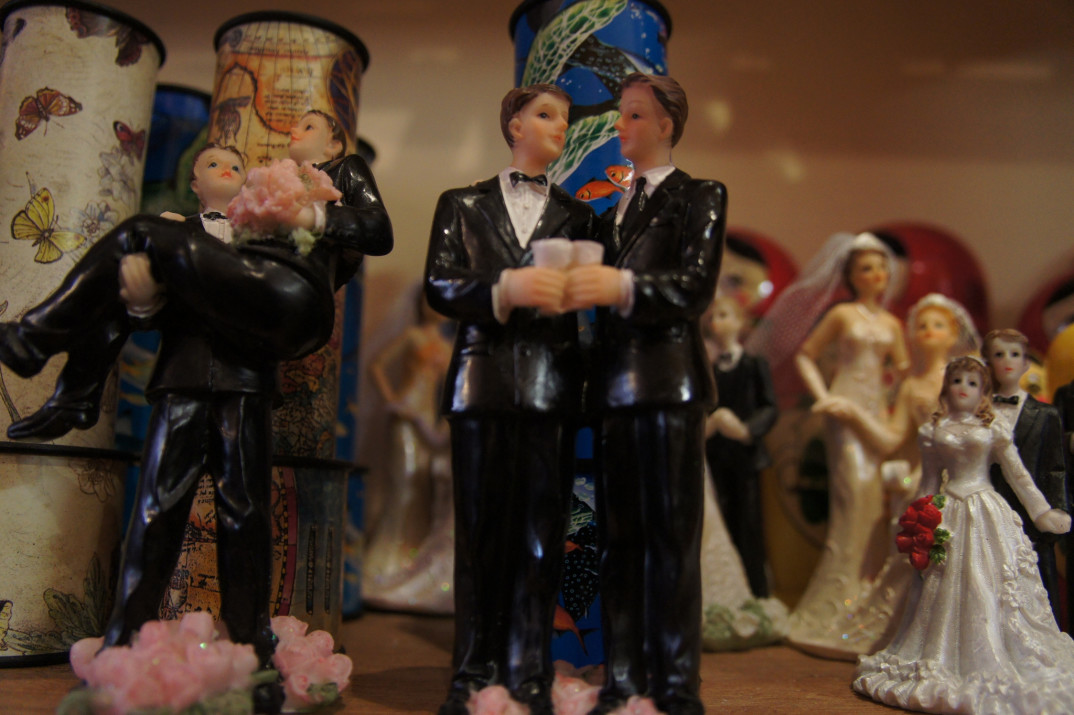With the recent spate of laws concerning gender-affirming medical care for trans people in the United States — both enacted and under consideration — the rights of trans people to receive gender-affirming care are being severely restricted. Take for example an emergency rule set in place by Missouri’s Attorney General this month.
The Missouri rule places a number of restrictions on trans-affirming medical treatments and interventions — including puberty blockers, hormone replacement therapy, and surgery — for both adults and minors. The rule prohibits many people from receiving these interventions, including anyone with unresolved depression, adolescents who have exhibited signs of social media addiction in the prior six months, anyone “exhibiting social contagion” with respect to their gender identity, and anyone without three years of medically documented dysphoria. The rule also requires 15 separate hourly therapy sessions over a minimum of 18 months prior to treatment. The result is that almost no youth will be able to access these interventions.
The emergency rule claims that these measures are “necessary to protect… public health, safety, and welfare.” Some might think, Isn’t caution here a good thing? If these interventions are experimental, shouldn’t we take a little more time for the science to catch up? We’re talking, in some cases, about children! But I will argue that the content of the Missouri rule does not show neutral, much less virtuous, concern for the well-being of the people who might access these medical interventions. Rather, its structure makes internal sense only as an expression of transphobia.
Rationality demands that we treat like cases alike, and fairness demands the same. The Missouri rule targets trans people in a way that violates both.
Here are three examples.
First, the rule objects that the use of puberty blockers to delay puberty for a trans adolescent is not approved by the FDA. It’s what’s known as off-label use. But, as the Department of Health and Human services notes, off-label medication prescription is not only common (accounting for one in five of all prescriptions), but furthermore, legal. In this case, the off-label use is still for the purpose for which the drug was developed. Puberty blockers are designed and approved by the FDA as puberty blockers, originally for what’s known as “precocious puberty”: puberty that comes earlier than typical. Off-label use isn’t objectionable in general, so why is it objectionable in this case? The only relevant difference seems to be that the restricted case concerns trans-affirming use.
A second way this rule unequally targets trans people is this: cis people use many of these treatments to affirm their gender, but the rule is explicit that such use is not prohibited. Breast augmentation, for example, is most often used by cis people to affirm their genders. A 2019 study regarding breast augmentation surgery showed 79% of such surgeries were performed on cis women vs. 21% on trans women among the database entries eligible for the study. Here, again, we have unequal treatment in allowing the one while restricting the other.
Finally, the rule does not restrict the use of these treatments for patients with certain chromosomal or physiological conditions that can lead to atypical sexual development, for whom interventions can be used to achieve a more typical-appearing body. The emergency rule does not state that the interventions are to be used in treatment of these conditions only when they are life-saving (such as surgeries to protect against kidney disease). In other words, the interventions may be used in the service of conforming to cisgender expectations, but not in the service of departing from them.
This difference in who is and isn’t included in the emergency rule is not an incidental oversight. The statement of which medical interventions are restricted by the law specifically qualifies that it applies to cases in which such interventions are used “for the purpose of transitioning gender, decreasing gender incongruence, or treating gender dysphoria.” This qualification suggests not that these interventions are unhealthy or bad in themselves, but that it is somehow unhealthy, unsafe, or contrary to welfare to receive them for the purpose of affirming oneself as trans.
To deny a trans person access to these interventions without making the same restrictions for cisgender people is straightforwardly to discriminate on the basis of sex (specifically, sex assigned at birth).
These aspects of the Missouri rule, echoed elsewhere in new legislation, seem to show a kind of irrational inconsistency. The stated concern for “public health, safety, and welfare” extends only to trans people. But irrationality may not be the most plausible explanation. Consider the analysis of philosopher Talia Mae Bettcher: “Transphobia occurs in a broader social context that systematically disadvantages trans people and promotes and rewards antitrans sentiment. It therefore has a kind of rationality to it, grounded in a larger cisgenderist social context.” What seems irrational — or you might think, hypocritical — in these laws is instead indicative of underlying commitments against trans people. I’m not speaking here as to the individual motives of the people who enact these laws (except to suggest that doing so requires little imagination), but rather to the mechanisms at work in the enactment of these laws. The laws themselves do not exhibit care, caution, or due hesitance; they exhibit transphobia. And they use the language of care, often for children, as a thin guise for their bigotry.
As to whether we should take more time before allowing youth access to gender-affirming care: trans youth, more likely than cis youth to attempt suicide, may not have more time. Consider the testimony of trans teen Eve Devitt, responding to Idaho’s total ban of transgender treatment for minors: “You can’t wait until you’re an adult. For the vast majority of trans kids, they won’t be adults without this treatment. I wouldn’t have made it past fourteen.”
That access to this care is a matter of life and death adds urgency; but, to be clear, access to gender-affirming care should not need to be a matter of life and death in order for people’s need for it to be taken seriously. Real care for trans people involves, at minimum, respecting the reasons for which people seek gender-affirming care — reasons that are deeply bound up with one’s sense of self. As transfeminine scholar Florence Ashley notes (speaking here of hormonal interventions, but applicable to gender-affirming healthcare more generally), these medical interventions are “ethically atypical: they are not a cure for an illness… but a tool of self-actualisation.” Without a chance for meaningful self-determination and the recognition of oneself by society, a person cannot flourish. Severe restrictions on access to trans healthcare undercut the possibility of this flourishing.
Far from showing care for the public’s safety and well-being, the Missouri rule and laws like it show a targeted disregard for trans people. Care for people involves trusting them; and, for those still in the process of coming to understand and actualize their own gender identity, it precludes making meaningful access to that process all but unattainable.







